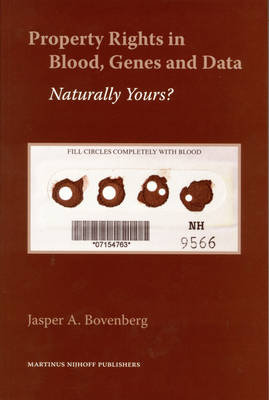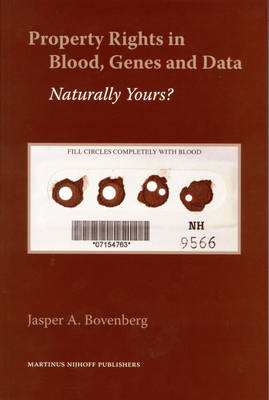
- Afhalen na 1 uur in een winkel met voorraad
- Gratis thuislevering in België vanaf € 30
- Ruim aanbod met 7 miljoen producten
- Afhalen na 1 uur in een winkel met voorraad
- Gratis thuislevering in België vanaf € 30
- Ruim aanbod met 7 miljoen producten
Zoeken
Omschrijving
Who owns our DNA? The intuitive answer to this question is readily apparent: you own your own DNA. However, since Watson and Crick discovered its molecular structure, our DNA has gradually evolved from the Secret of Life to a potentially lucrative Commodity. This development has triggered conflicting perspectives as to who holds legal title to our blood, genes and related health data. Rather than focusing on a specific property claim in isolation, this book is the first to provide an integrated analysis of the merits of each of these perspectives. While the United Nations have proclaimed human DNA as the Heritage of Humanity, industry claims it to be patentable subject matter. Whereas populations whose DNA is used in national biobanks claim their DNA as their National Property, individual patients increasingly stand up for their Personal Property Rights in their samples. Meanwhile academic researchers claim their collections of biological materials as their Academic Property. Taking a case and context driven approach and backing up traditional legal analysis with historical analogies, web-surveys and practical experience, Jasper Bovenberg provides counter-intuitive, provocative and practical answers and recommendations for such controversial issues as how to share the benefits of DNA research, whether or not to recognize personal property rights in bodily material and access to biomedical datasets in academia. This book will interest not only lawyers and researchers, but also universities, funding agencies, industry and policymakers worldwide. It is also written to inform patients, their relatives, doctors and anyone else with an interest in a dilemma that is as universal as our DNA.
Specificaties
Betrokkenen
- Auteur(s):
- Uitgeverij:
Inhoud
- Aantal bladzijden:
- 225
- Taal:
- Engels
- Reeks:
- Reeksnummer:
- nr. 66
Eigenschappen
- Productcode (EAN):
- 9789004150539
- Verschijningsdatum:
- 21/12/2005
- Uitvoering:
- Paperback
- Formaat:
- Trade paperback (VS)
- Afmetingen:
- 162 mm x 241 mm
- Gewicht:
- 412 g

Alleen bij Standaard Boekhandel
+ 314 punten op je klantenkaart van Standaard Boekhandel
Beoordelingen
We publiceren alleen reviews die voldoen aan de voorwaarden voor reviews. Bekijk onze voorwaarden voor reviews.








